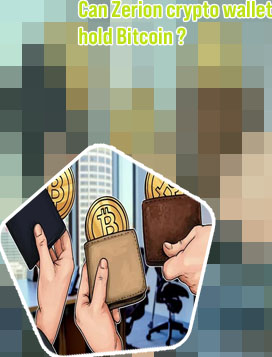Crypto wallet
How to buy bitcoin
When it comes to managing cryptocurrency, having a secure and user-friendly crypto wallet is essential. In this list, we have curated two articles that provide valuable insights and tips on choosing and using a crypto wallet effectively. Whether you are new to the world of cryptocurrency or a seasoned investor, these articles will help you navigate the complexities of crypto wallets and make informed decisions.
The Best Crypto Wallets of 2021: A Comprehensive Guide

Today we have the pleasure of speaking with a crypto expert who has just finished reading a comprehensive guide on the best crypto wallets of 2021. Let's hear what they have to say about it.
Interviewer: Can you tell us your thoughts on the guide you read about the best crypto wallets of 2021?
Crypto Expert: Absolutely! I found the guide to be extremely informative and well-researched. It covers a wide range of crypto wallets, from hardware to software and even mobile wallets, providing detailed information on each type. The guide also includes factors to consider when choosing a wallet, such as security features, ease of use, and compatibility with different cryptocurrencies.
Interviewer: That sounds like a valuable resource for anyone looking to get into cryptocurrency. Was there anything in particular that stood out to you?
Crypto Expert: One thing that stood out to me was the in-depth reviews of each wallet, including pros and cons, supported cryptocurrencies, and unique features. This made it easy for me to compare different wallets and choose the one that best fits my needs.
Tips for Safely Storing and Securing Your Cryptocurrency in a Wallet
In the world of cryptocurrency, one of the most important aspects to consider is the security of your digital assets. With the rise in popularity of cryptocurrencies like Bitcoin and Ethereum, it is crucial to understand how to safely store and secure your holdings in a wallet.
One key tip for securely storing your cryptocurrency is to use a hardware wallet. Hardware wallets are physical devices that store your private keys offline, making them less susceptible to hacking or online attacks. By keeping your private keys offline, you can greatly reduce the risk of your funds being stolen.
Another important tip is to enable two-factor authentication on your wallet. Two-factor authentication adds an extra layer of security by requiring a second form of verification before allowing access to your funds. This can help prevent unauthorized access to your wallet, even if someone manages to obtain your password.
It is also recommended to regularly back up your wallet and keep multiple copies in secure locations. This way, if your hardware wallet is lost or damaged, you can easily restore your funds using the backup.
In conclusion, following these tips for safely storing and securing your cryptocurrency in a wallet is essential for protecting your digital assets from theft or loss. By using a hardware wallet, enabling two-factor authentication, and regularly backing up your wallet, you can help ensure that your funds
